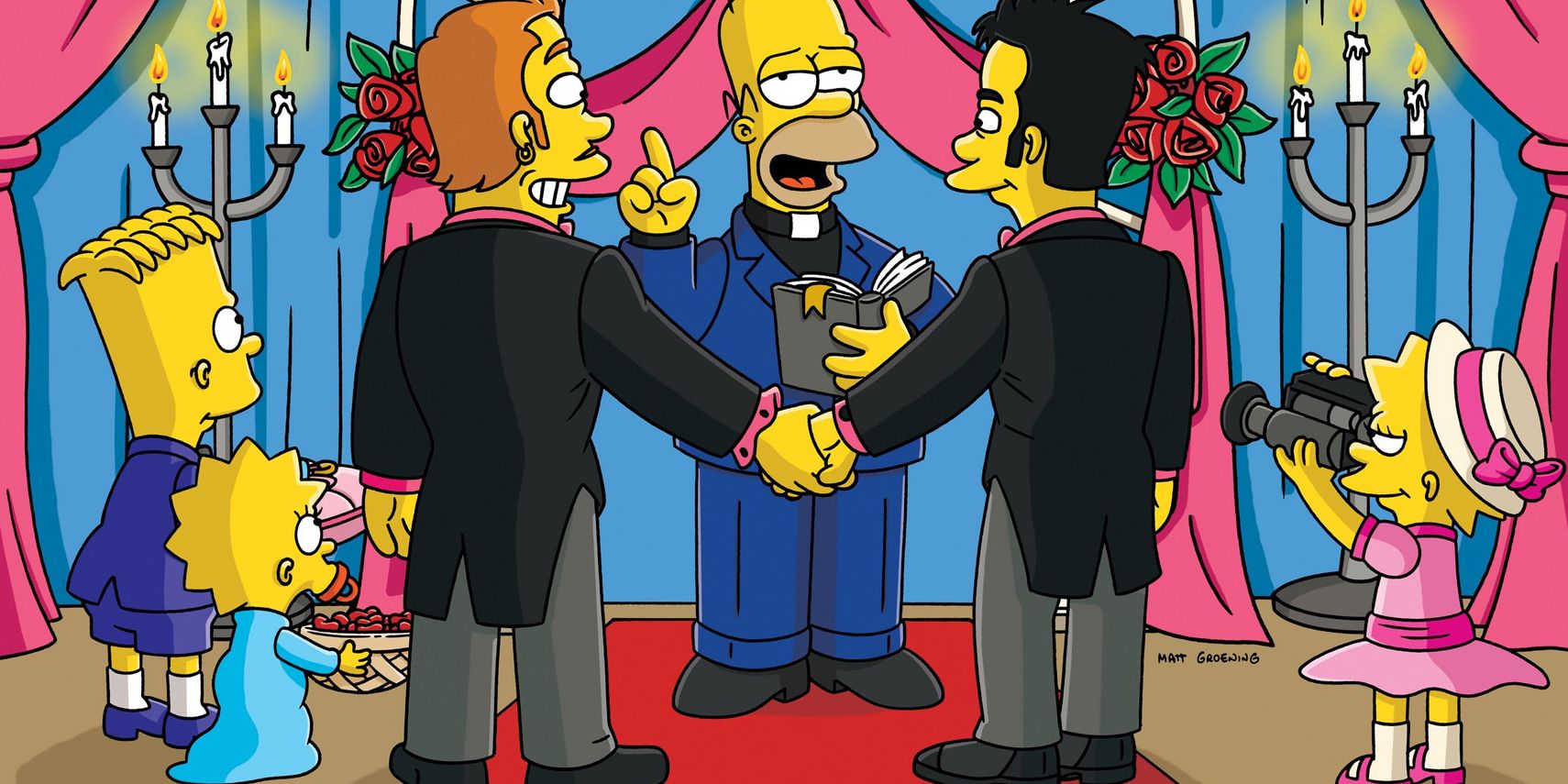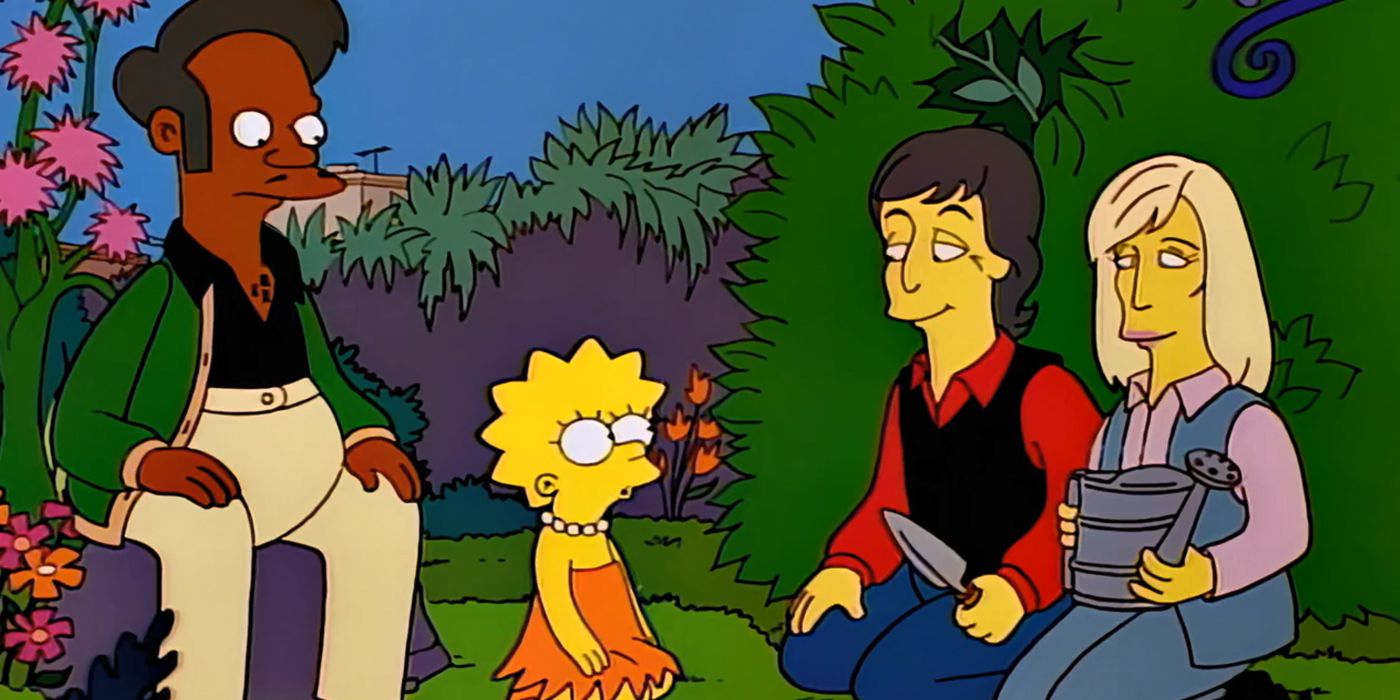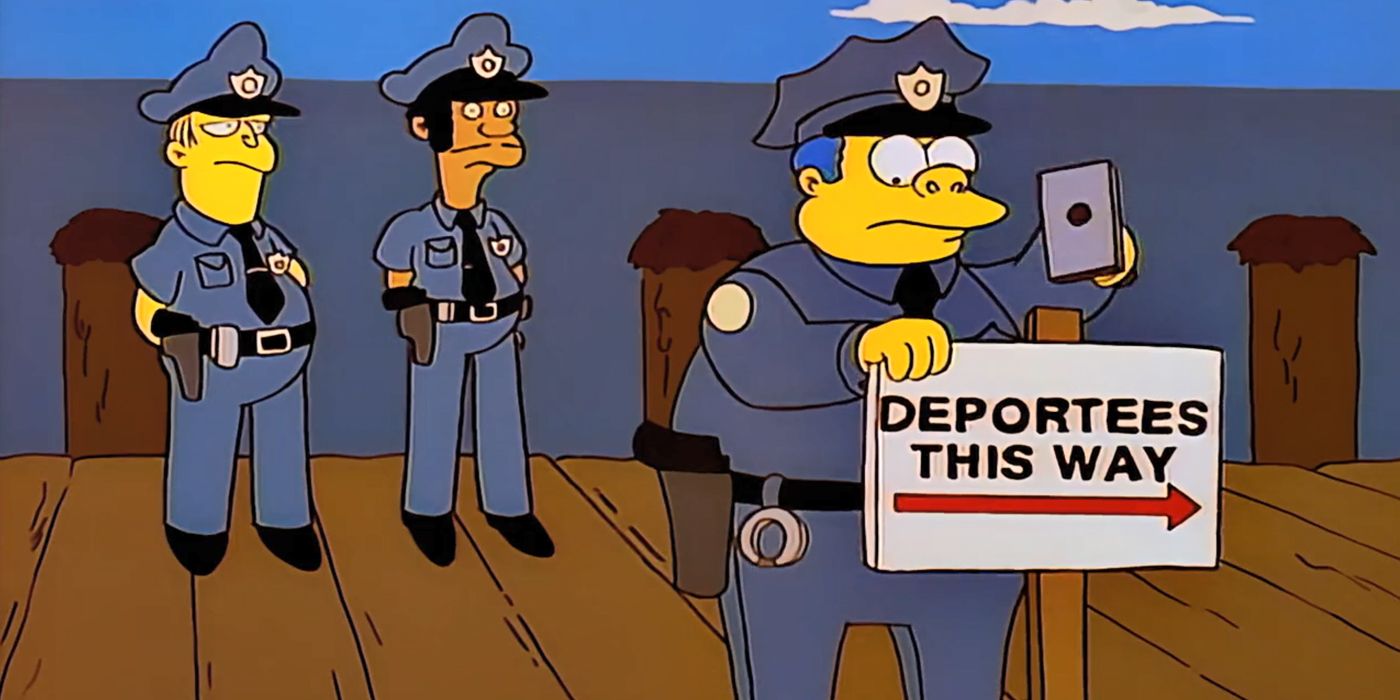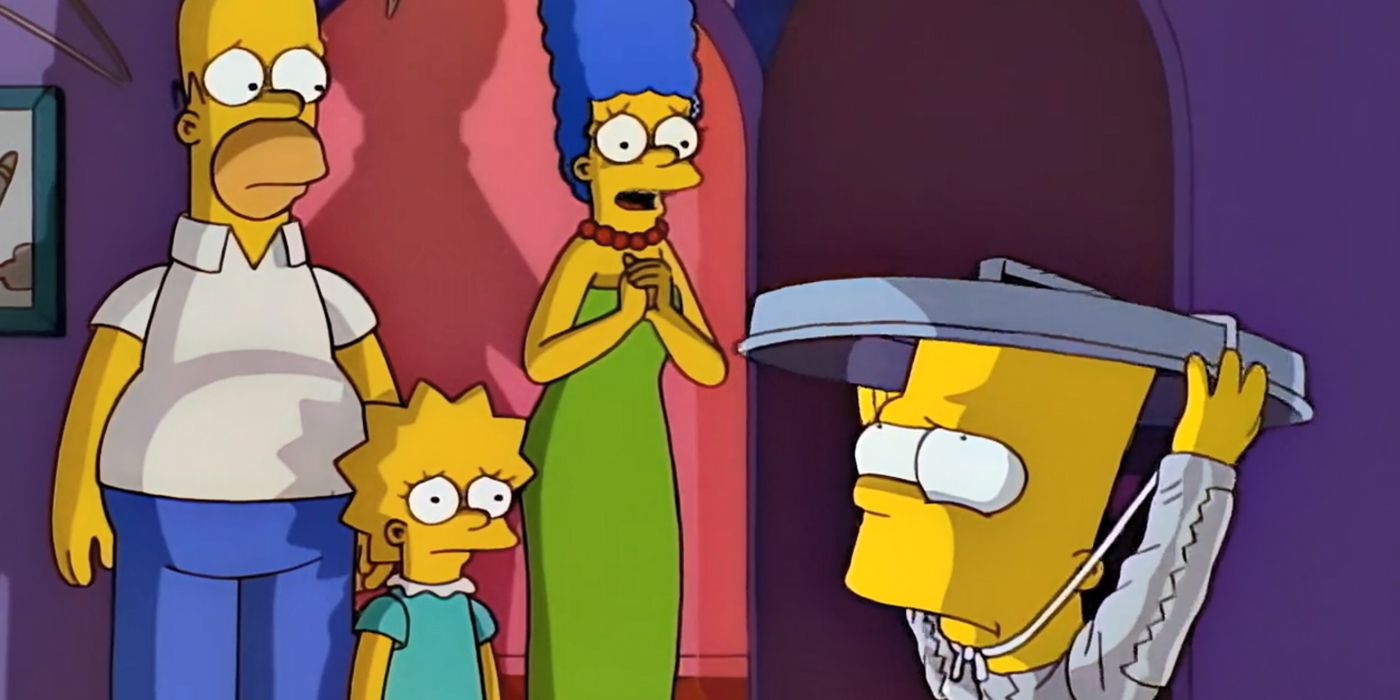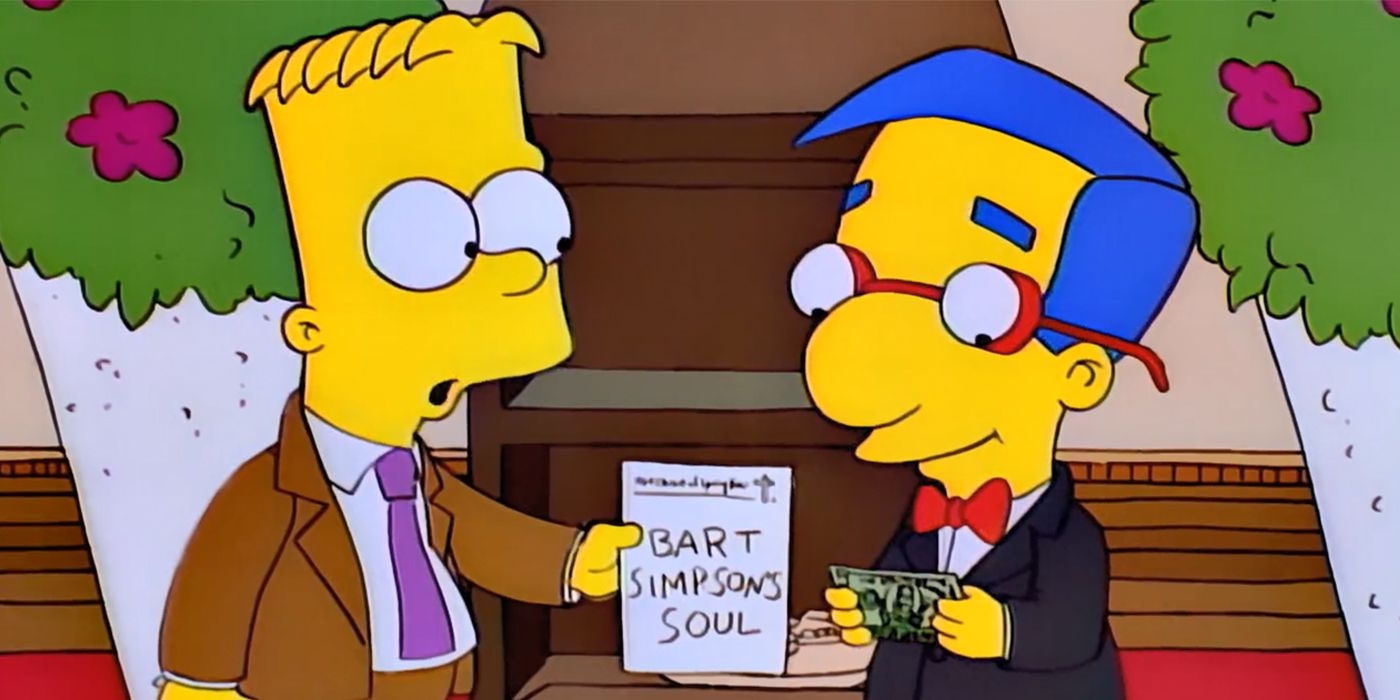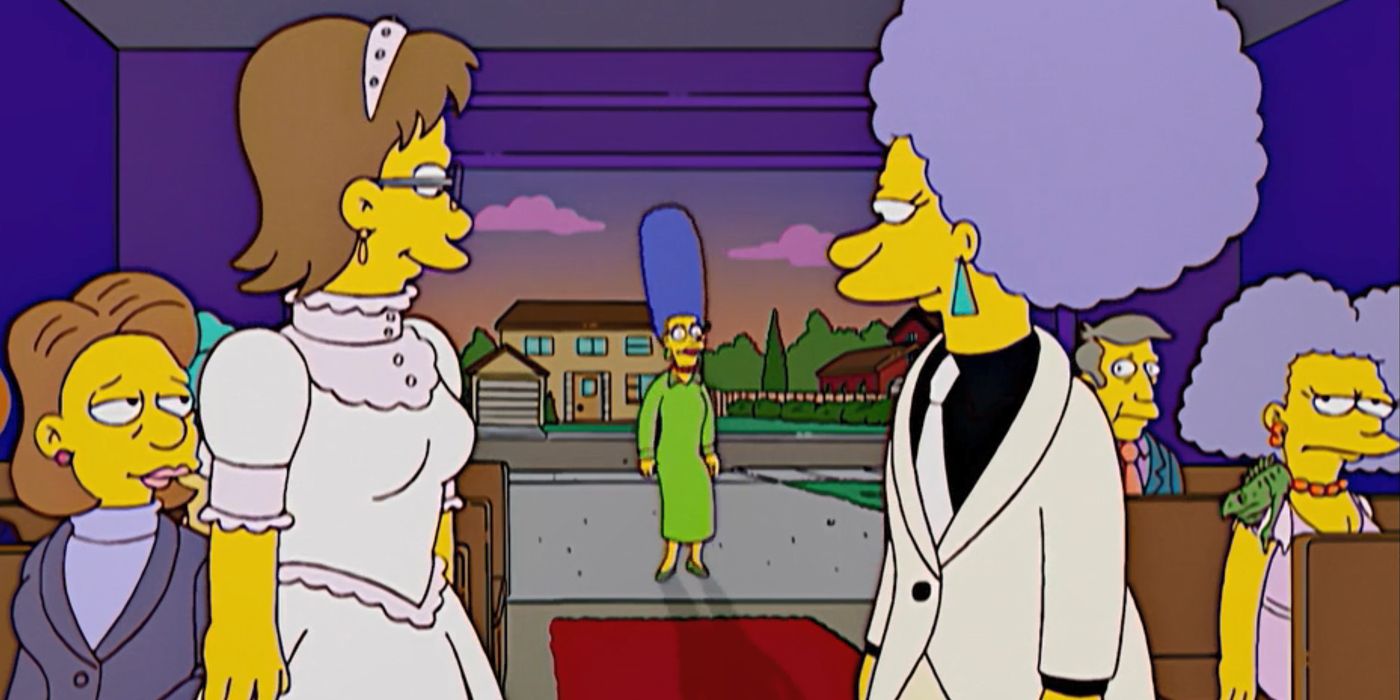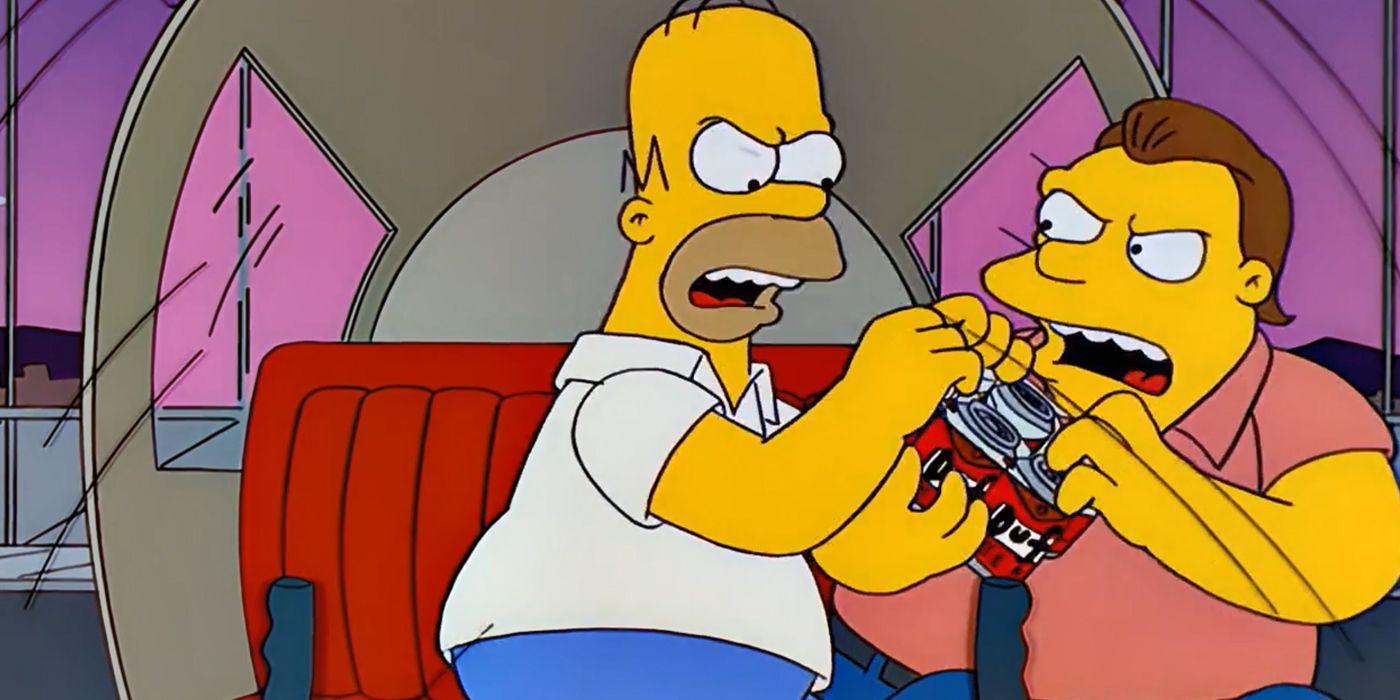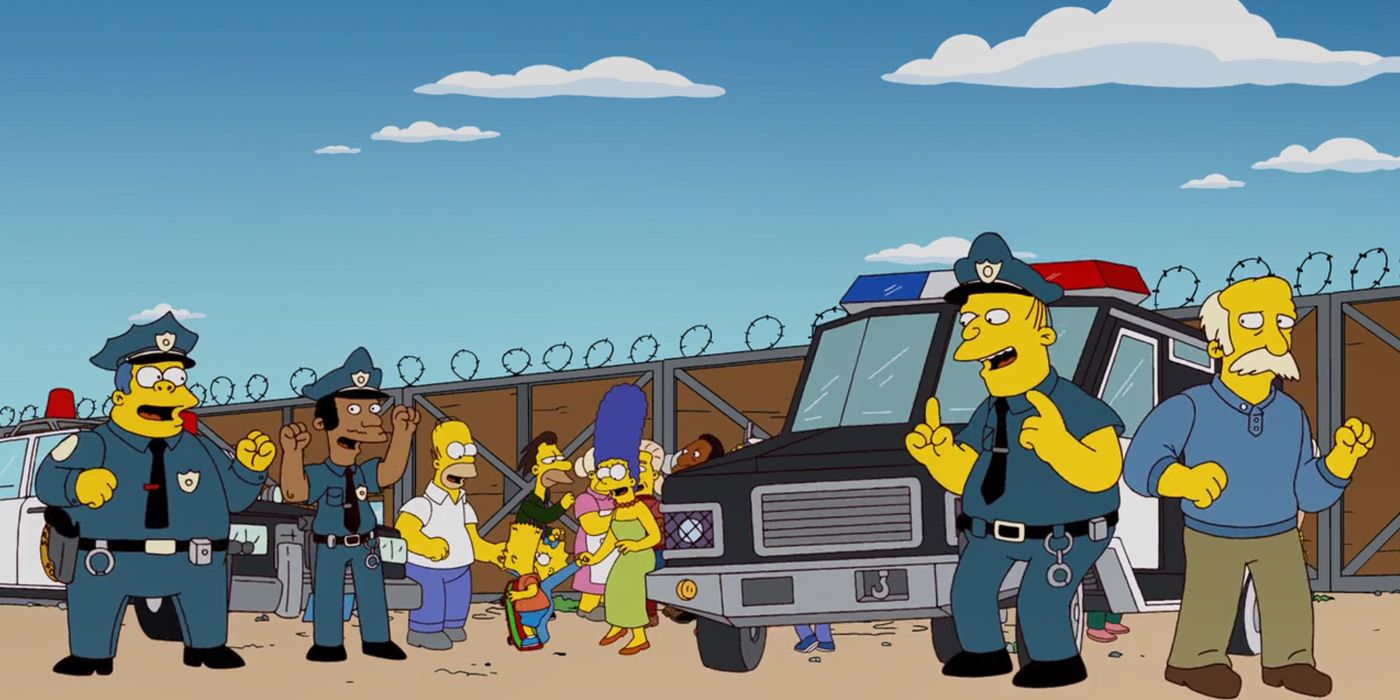There was a time when The Simpsons was an outlier in popular entertainment. The long-running animated series raised topics that its contemporaries shied away from. Another show may have produced the occasional "very special" episode, but classic Simpsons addressed urgent social issues regularly and with magnitude. What made the series so successful in these moments was its ability to convey the gravity of these matters so understandably. That brand of satirical humor was the perfect filter too, as it prevented the writers from becoming too preachy. Here are ten storylines in The Simpsons that were ahead of their time.
Vegetarianism
The oldest Simpson daughter makes a substantial choice to give up eating meat in Season 5's "Lisa the Vegetarian". This causes conflict between Lisa and her father Homer, who is a strict omnivore. It may seem like Homer is being the intolerant one, but Lisa comes off as very judgmental. She simply refuses to budge on her her new stance. Lisa eventually comes around and acts more tolerant after a well-timed chat with Apu and celebrity vegetarians Paul and Linda McCartney. While Lisa and Homer's disagreement is played for laughs, it does touch upon the more serious issue of animal rights.
LGBTQ+ Representation
Waylon Smithers had always been a walking punchline for the show's dated view on same-sex orientation. In Season 8's "Homer's Phobia", we meet another gay character in The Simpsons' new family friend John (played by John Waters). Homer is ignorant of this information until Marge points it out. From then on, Homer's behavior towards John is very rude. The episode makes it clear that Homer is the one with the problem, as he's the only person not accepting of John, and was praised for its anti-homophobia message.
Guns
Following a riot at a soccer match, Homer buys a handgun in lieu of a security system in Season 9's "The Cartridge Family". Marge then leaves Homer when he fails to dispose of the weapon. The NRA also rejects Homer after witnessing how irresponsible he is with a gun. John Swartzwelder tried to have an unbiased opinion on guns when writing the script. The real-life NRA however, was not too happy with its fictional depiction. Ironic, since Springfield's NRA members are among the most level-headed characters here. Nevertheless, the episode offers an unequivocal perspective on the always controversial Second Amendment.
Undocumented citizens
A new Springfield proposition dictates undocumented citizens be deported in Season 7's "Much Apu About Nothing". This includes the Simpsons family's dearest and oldest friend Apu Nahasapeemapetilon. The iconic Kwik-E-Mart employee was living in America on an expired student visa. Homer at first agrees with the referendum, but later changes his mind. The Simpsons then tutor Apu so he can take a citizenship test and stay in the country. In the conclusion, Lisa struggles to explain to Homer and Apu how all non-indigenous American citizens descend from immigrants. And like in real life, this plain fact flies right over people's heads.
Misdiagnosing children
Facing the threat of expulsion in Season 11's "Brother's Little Helper", Bart is prescribed an untested psychostimulant called Focusyn. The wonderful side effects happen to include drug psychosis and paranoia. In the end, the adults realize Bart doesn't need the medication at all. This episode came at a time when schools and doctors regularly misdiagnosed children with attention-deficit disorder instead of treating their actual issues. The growing, unsettling trend just wasn't talked about enough. Writer George Meyer didn't have a hard stance about the habit of dispensing Ritalin like candy, but he still feared a problem was on the rise.
Religion
The best episode in The Simpsons about religion is Season 7's "Bart Sells His Soul". Bart gives up his soul to his friend Milhouse for only $5 to prove souls don't exist. As a result, Bart's life changes for the worse. The story not only questions if souls are real, but is a life worth living without one. It's a weighty topic that Lisa breaks down like only a theologian would. Something else brought up is religions profiting off their followers. Most television in 1995 definitely did not dare to speak so candidly about faith and the church.
Marijuana
Weed might not be quite as sensitive a subject today (especially when it is increasingly legalized), but Season 13's "Weekend at Burnsie's" was a daring episode in 2002. Homer gets a prescription for medicinal marijuana after a murder of crows attack him. He's hesitant, but the medicine helps him. Aside from being Mr. Burns' new favorite person, Homer is now more easy-going. Homer was never actually shown physically smoking, but the episode was progressive for casting marijuana in both a different and positive light. The media's anti-drug ads back then were not known for elucidating marijuana's medicinal quality.
Gay marriage
Marge upset lots of fans in Season 16's "There's Something About Marrying" when she disapproved of her sister Patty coming out. Marge then learned Patty's fiancée is secretly a man posing as a woman only so he can play in the LPGA golf tour. Yet Marge keeps this info to herself because this means her sister would be marrying a man after all. By the end, Marge accepts Patty for who she is. This isn't all that positive sounding, but the most important takeaway is Springfield legalizing same-sex marriage ten years before the landmark civil rights case Obergefell v. Hodges.
Substance abuse
Critics and audiences alike were split about the dramatic character development of local lush Barney Gumble in Season 11's "Days of Wine and D'oh'ses". Barney quits booze upon seeing himself drunk on video in the episode. He joins AA and makes amends for his past. Plenty of people felt sobering Barney up stripped away some of the show's most fundamental humor. The episode was also panned for becoming what the series mocked — solving serious problems in thirty minutes. Whereas others commended The Simpsons for tackling alcoholism head-on after depicting it as nothing but a running gag for over a decade.
Border control
Season 20's finale "Coming to Homerica" is ahead of its time because it predicted one of the biggest political issues in America today. Springfield becomes home to displaced Ogdenvillians after their neighboring town of Ogdenville goes belly-up. Homer and everyone exploits the struggling Ogdenvillians for cheap day labor, but then resents and shuns them for various reasons. This leads to Springfielders erecting a wall around their town to keep the Ogdenvillians out. The Simpsons has eerily foretold future political events before, and this episode is very on the nose in regards to America's ongoing discourse over undocumented citizens and immigration.

